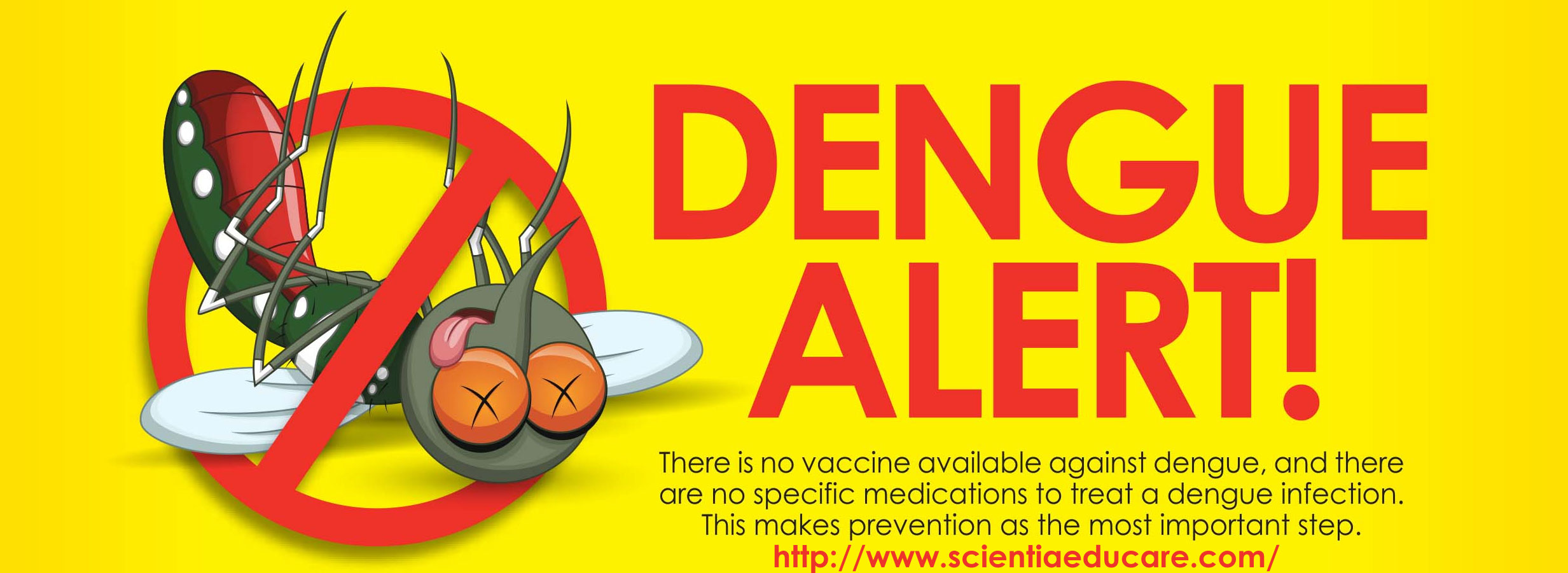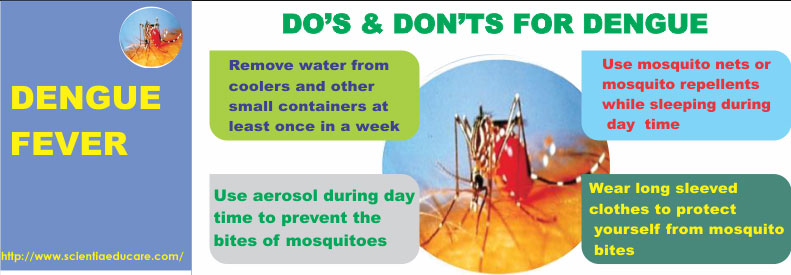
What is dengue?
Dengue fever
Also called: breakbone fever
Dengue fever is passed on by a mosquito bit, mostly the Aedes aegypti mosquito (or “tiger mosquito”). There are four types of the dengue virus, and the infection causes a wide range of symptoms, including fever, headache, pain behind the eyes, muscle and joint pain, and rash. People infected with dengue often also experience long-term fatigue.
Dengue occasionally develops into a life-threatening form (known as severe dengue), which causes abdominal pain and vomitting, breathing difficulty and a decrease in of blood platelets that can lead to internal bleeding.

A mosquito-borne disease occurring in tropical and subtropical areas.
Those who become infected with the virus a second time are at a
significantly greater risk of developing severe disease.
Symptoms include high fever, headache, rash and muscle and joint pain.
In severe cases there is serious bleeding and shock, which can be life
threatening.

Treatment includes fluids and pain-relievers. Severe cases require
hospital care.
ABOUT 2.5% OF THOSE INFECTED BY SEVERE DENGUE DIE,
AND THERE IS NO CURE FOR THE INFECTION.
Symptoms
Requires a medical diagnosis

Symptoms include high fever, headache, rash and muscle and joint pain.
In severe cases there is serious bleeding and shock, which can be life
threatening.
People may experience:
Pain areas: in the abdomen, back, back of the eyes, bones, joints or muscles
Whole body: chills, fatigue, fever, or loss of appetite
Gastrointestinal: nausea or vomiting
Skin: rashes or red spots
Also common: bleeding, easy bruising, headache or sore throat

Critical: consult a doctor for medical advice Note: The information you see describes what usually happens with a medical condition, but doesn't apply to everyone. This information isn't medical advice, so make sure that you contact a health care provider if you have a medical problem. If you think you may have a medical emergency, call your doctor or a emergency number immediately.















